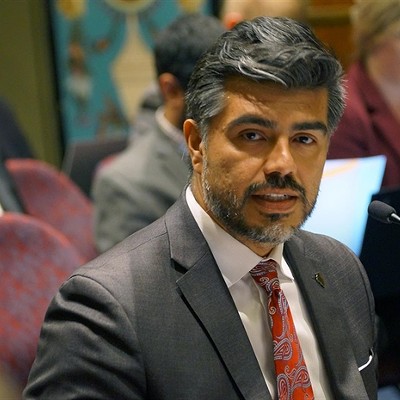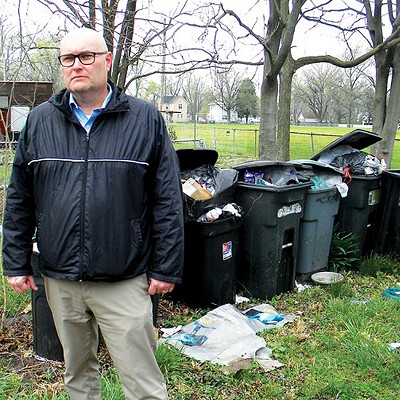Being a national laughingstock has been bad enough. Sadly we’ve gotten used to the leadership vacuum that exists among state elected officials. But now Gov. Rod Blagojevich’s most recent legal troubles are really starting to hit Illinoisans where it hurts: in the state treasury.
Long before Blagojevich and his chief of staff John Harris were taken into custody and charged with conspiracy to commit mail and wire fraud and other crimes, Illinois was already struggling financially.
The governor’s arrest only made money matters worse. “It’s not just causing uncertainty; it’s causing real money problems,” says Sara Wojcicki, a spokeswoman for state Treasurer Alexi Giannoulias.
Before all this happened, Giannoulias, state Comptroller Dan Hynes, and the governor’s budget office had been working on a plan to borrow $1.4 billion through a bond sale to help pay down the state’s staggering $4.5 billion backlog of unpaid bills. The sale was temporarily halted when Attorney General Lisa Madigan, who must approve bond sales, raised questions.
Before such a transaction can take place, the attorney general must sign a certificate stating that no threatened or pending lawsuits face the individuals responsible for executing the sale.
“Due to the [governor’s] arrest that week, the attorney general’s office was unable to sign such a document,” says Madigan spokeswoman Robyn Ziegler. The sale proceeded after new language “that addressed all the governor’s legal problems” was drafted and approved by bond industry attorneys.
At that point, the damage had been done. Hearing news of the arrest of Illinois’ chief executive officer, investment ratings services Fitch and Moody’s also downgraded Illinois’ bond rating. Giannoulias estimates the delay cost the state $20 million in interest payments.
“We’re calling it a corruption tax,” says Wojcicki.
The comptroller’s office finally received the funds on Monday, Dec. 22. “Our intention is to make payments to Medicaid and social services that have been waiting an extraordinarily long amount of time,” Hynes spokeswoman Carol Knowles told Illinois Times last week.
Payments to Medicaid providers — 50 percent of which are reimbursed by the federal government, allowing the
comptroller to pay even more bills — and “sensitive services,” that provide care for children and senior citizens would also be priorities,
Knowles says.
Contact R.L. Nave at [email protected].
















